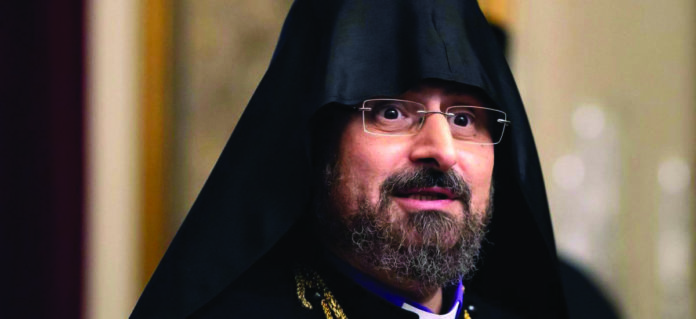ISTANBUL (AP, Ahval) — Turkey’s Armenian community on December 11 voted in Bishop Sahak Masalyan (alternatively written as Mashalyan or Mashalian) as its new patriarch, in an election that critics say was overshadowed by Turkish government intervention.
Delegates elected Masalyan, 57, as the 85th patriarch of the Armenian Orthodox Christians in Turkey, the church announced at the end of an election process that began on December 7. He succeeds Patriarch Mesrob II, who died in March at 62.
Masalyan’s rival, Archbishop Aram Atesyan, had been serving as acting patriarch since 2008, when Mesrob became incapacitated and withdrew from his duties.
Atesyan and Masalyan were among only three candidates who were able to stand for the position after Turkey ruled that Armenian clergy currently serving abroad would not be eligible. The third candidate dropped out of the race in protest, while some community members boycotted the election process, according to Turkish media reports.
The patriarch is considered the head of the Armenians in Turkey, which numbers an estimated 70,000, and serves as a go-between the government and the community. Turkish officials often rely on the patriarch’s cooperation for their efforts to counter moves around the world to recognize the mass killings of Armenians by Ottoman Turks a century ago as genocide.
Historians estimate that up to 1.5 million Armenians were killed around World War I, and many scholars see it as the 20th century’s first genocide. Turkey disputes the description, saying the toll has been inflated and that those killed were victims of a civil war. Turkey has repeatedly called for a joint committee of historians to investigate the slayings.










